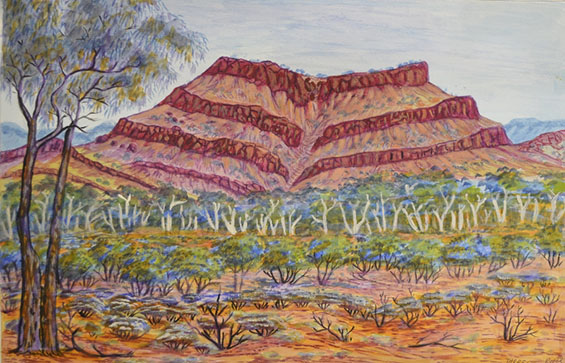
For anyone interested in the arguments about cultural value and authority, the competing interests and agendas involved in those arguments, and the various ways in which particular ideas and works come to be validated and venerated, it has been a week of provocative juxtapositions. One day after the ABC’s long-running television program The First Tuesday Book Club was admonished for not doing enough to promote Australian literature, stirring for the umpteenth time those never-entirely-vanquished anxieties about the ‘cultural cringe’ (which never goes away, in part, because it cuts both ways: both celebrating and not celebrating local writers can be viewed as symptoms), an Australian novelist took out one of the world’s most prestigious literary awards. Congratulations to Richard Flanagan the Man Booker Prize-winning ‘litterateur’ (the Prime Minister’s word) on a tremendous achievement. (Though spare a thought for the poor Miles Franklin Award judges. Having been the subject of sustained criticism in recent years for failing to give adequate recognition to women writers, the prize this year went to Evie Wyld. Now the judges are being chipped because, whoops, it was supposed to be Flanagan’s year. Tisk, tisk. And they can’t say they weren’t told.)
Meanwhile, the federal government’s National Curriculum Review found what it was set up to find, namely that students are not being subjected to sufficient quantities of Western civilisation and edifying Judaeo-Christian values – though the good news is that it’s nothing a good dose of Bible studies won’t fix. No sooner was the report released than Barry Spurr, Professor of Poetry at Sydney University and one of the experts appointed to advise the reviewers, Dr Kevin Donnelly and Professor Kenneth Wiltshire, about the English curriculum, gave us a remarkable demonstration of the refining and civilising effects of a lifetime’s immersion in poetry and religious literature. In emails published yesterday in New Matilda, Professor Spurr uses a variety of uncomplimentary epithets to describe Indigenous Australians, Muslims, Chinese people, persons of colour in general, and women. For good measure, he also derides ‘bogans’ and ‘fatsoes’, and singles out Desmond Tutu, Adam Goodes and Nelson Mandela for special attention. Professor Spurr has sought to characterise these emails as satirical and ‘whimsical’. Whether this is indeed the case, or whether he is merely exercising his right to be a bigot (though, to be fair, he does at least seem to be something of an equal opportunity bigot), I think it is fair to conclude, on the basis of the evidence to hand, that humour is not Professor Spurr’s strong suit. Certainly, his employer Sydney University has failed to see the joke and has now moved to suspend him. His comedy stylings did, however, bring to mind Gandhi’s response when asked what he thought about Western civilisation: ‘I think it would be a good idea.’
This week, Sydney Review of Books is pleased to feature an essay by the American fiction writer, editor and critic Chris Kraus, whose books include I Love Dick (1997), Torpor (2006) and Where Art Belongs (2011). Kraus established the successful Native Agents series of books for Semiotext(e) and in ‘The New Universal’ she reflects on her motivations, the evolution of Native Agents’ distinctive aesthetic, and the ways in which the changing nature of publishing is breaking down old cultural hierarchies, empowering women writers, and creating new forms of recognition and legitimation in the literary world. Writes Kraus:
I think there has been a huge shift among younger women in the last half-decade, comparable maybe to the change in public opinion about legalised marijuana. This shift has occurred across the culture, from the ground up, online, from the great expanses of blog-land, in entertainment media, and in New York publishing and media circles. Like the illogic of soft-drug prohibition, certain conditions of patriarchy are simply no longer tolerable.
Our second essay looks at the recently reissued fiction of the great Sicilian crime writer Leonardo Sciascia. In ‘Years of Lead’, Luke Slattery examines the work of a writer who did ‘more than anyone to unveil the Mafia and expose the corruption of the entire political class’. Sciascia’s ‘metaphysical crime’ novels and stories are not merely incisive and even prescient examinations of the dark forces at work in his society, they are also deeply philosophical works. ‘Braided around their assured plotlines,’ observes Slattery, ‘are philosophical dialogues on morality and politics, justice and mortality: universal themes with a distinctive Sicilian inflexion.’
From the Archives continues the publishing theme with Andrew McCann’s essay ‘Lives of the Publishers’, in which he considers the weird world of twentieth century literary publishing. Examining the licentious and volatile internal cultures of several prominent publishing houses, including Grove Press and Farrar, Straus and Giroux, McCann considers the ways in which their attempts to establish, with varying degrees of success, the cultural cachet of their imprints and their authors have contributed to the reception, perception and prestige of modern literature.
